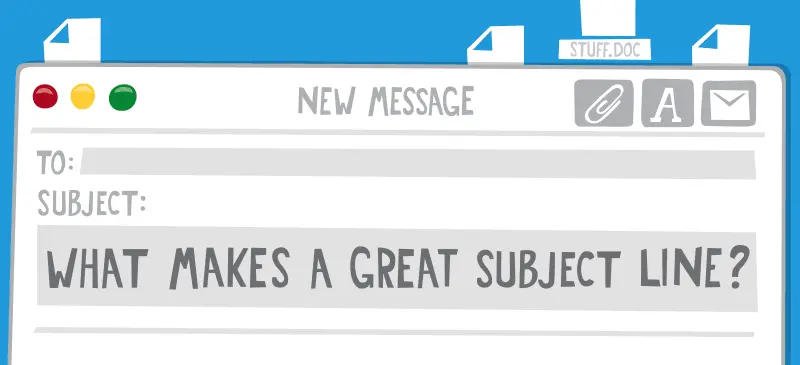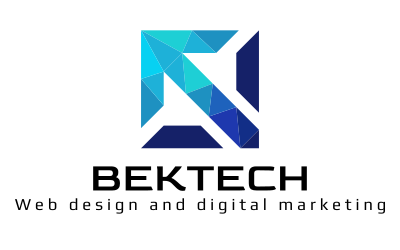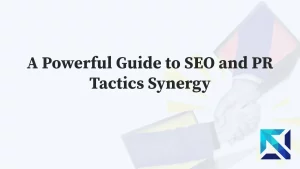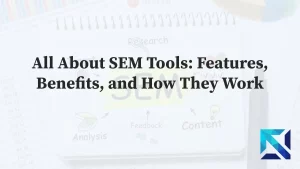Email marketing is a powerful tool for ecommerce businesses. It allows you to reach your customers directly, build relationships, and drive sales. But with so many email marketing software options available, it can be overwhelming to know where to start. In this article, we’ll explore the secrets of email marketing for ecommerce and how you can use it to boost sales and drive engagement.
Why Email Marketing is Essential for Ecommerce
Email marketing is a cost-effective way to reach your customers and promote your products. It allows you to personalize your messaging, segment your audience, and track the success of your campaigns. Here are some key reasons why email marketing is essential for ecommerce businesses:
Personalization and Segmentation
One of the biggest advantages of email marketing is the ability to personalize your messaging and segment your audience. With the right email marketing software, you can create targeted campaigns based on customer behavior, demographics, and interests. This allows you to send relevant and personalized content to your customers, increasing the chances of engagement and sales.
Cost-Effective
Compared to other marketing channels, email marketing is relatively inexpensive. With the right email marketing software, you can reach a large audience at a fraction of the cost of traditional advertising methods. This makes it an ideal option for small and medium-sized ecommerce businesses with limited marketing budgets.
Measurable Results
Email marketing allows you to track the success of your campaigns in real-time. You can see how many people opened your email, clicked on links, and made a purchase. This data can help you refine your email marketing strategy and improve your results over time.
Choosing the Best Email Marketing Software for Ecommerce

With so many email marketing software options available, it can be challenging to know which one is best for your ecommerce business. Here are some key features to look for when choosing an email marketing software:
Automation and Personalization in Email Marketing for Ecommerce
Automation and personalization are essential for successful email marketing campaigns. Look for an email marketing software that allows you to create automated campaigns based on customer behavior, such as abandoned cart emails or product recommendations. Personalization features, such as dynamic content and segmentation, are also crucial for delivering targeted and relevant messaging to your audience.
Integration with Ecommerce Platforms
To make the most of your email marketing efforts, it’s essential to choose a software that integrates with your ecommerce platform. This allows you to sync customer data, track purchases, and create targeted campaigns based on customer behavior.
Analytics and Reporting
To track the success of your email marketing campaigns, you need access to analytics and reporting features. Look for an email marketing software that provides detailed data on open rates, click-through rates, and conversions. This information can help you refine your strategy and improve your results over time.
Email Optimization Tips for Ecommerce
Now that you have chosen the best email marketing software for your ecommerce business, it’s time to optimize your campaigns for maximum impact. Here are some tips to help you get the most out of your email marketing efforts:
Use Eye-Catching Subject Lines

The subject line is the first thing your customers will see when they receive your email. Make sure it’s attention-grabbing and relevant to the content of your email. Use personalization and urgency to entice your customers to open your email.
Segment Your Audience
Segmenting your audience allows you to send targeted and relevant content to your customers. You can segment your audience based on demographics, purchase history, or behavior. This ensures that your customers receive emails that are tailored to their interests and needs.
Use Dynamic Content
Dynamic content allows you to personalize your emails even further. You can use it to display different content to different segments of your audience, based on their interests or behavior. This can help increase engagement and conversions.
Optimize for Mobile
With more and more people accessing their emails on their mobile devices, it’s crucial to optimize your emails for mobile viewing. Make sure your emails are easy to read and navigate on a smaller screen to ensure maximum engagement.
Test and Refine
To get the best results from your email marketing campaigns, it’s essential to test and refine your strategy. A/B testing allows you to test different subject lines, content, and calls to action to see what resonates best with your audience. Use this data to refine your campaigns and improve your results over time.
Real-World Examples of Successful Email Marketing for Ecommerce
Let’s take a look at some real-world examples of ecommerce businesses using email marketing to boost sales and drive engagement:
Sephora
Sephora, a beauty retailer, uses email marketing to promote new products, offer discounts, and provide personalized recommendations to their customers. They also use segmentation to target specific customer groups, such as beauty insiders or VIP members, with relevant content and offers.
Huckberry
Huckberry, an online retailer for men’s clothing and gear, uses email marketing to showcase their products and drive sales. They also use dynamic content to personalize their emails based on customer interests and behavior. For example, if a customer has shown interest in a particular product, they will receive an email with a discount code for that product.
The Future of Email Marketing for Ecommerce
As technology continues to evolve, so does email marketing for ecommerce. Here are some trends to keep an eye on in the future:
Artificial Intelligence

Interactive Emails
Interactive emails, such as quizzes, polls, and games, are becoming increasingly popular in email marketing. These types of emails can increase engagement and provide valuable data on customer preferences and interests.
Personalization at Scale
With the help of AI and automation, personalization at scale is becoming more accessible for ecommerce businesses. This means that even small businesses can deliver personalized content and offers to their customers, increasing engagement and sales.
Transforming Window Shoppers into Loyal Customers: Building Relationships Through Email
One of the key strategies in email marketing for ecommerce is transforming window shoppers into loyal customers. Building relationships through email is crucial in converting casual browsers into repeat buyers. By engaging with potential customers through personalized and targeted email campaigns, ecommerce businesses can nurture leads and encourage them to make a purchase.
Here are some effective tactics for transforming window shoppers into loyal customers through email:
- Personalized Recommendations: Use customer data to provide personalized product recommendations based on their browsing history or past purchases. This tailored approach can entice window shoppers to revisit your website and make a purchase.
- Exclusive Offers: Offer exclusive discounts or promotions to subscribers who have shown interest in your products but haven’t made a purchase yet. Limited-time offers can create a sense of urgency and encourage window shoppers to take action.
- Educational Content: Provide valuable and educational content related to your products or industry to build trust with potential customers. By offering helpful information, you can position your brand as an authority in the field and keep window shoppers engaged.
- Customer Reviews and Testimonials: Showcase customer reviews and testimonials in your emails to build social proof and credibility. Positive feedback from satisfied customers can help alleviate any doubts window shoppers may have and motivate them to make a purchase.
- Interactive Emails: Incorporate interactive elements such as quizzes, surveys, or product recommendations in your emails to engage window shoppers and gather valuable insights about their preferences. Interactive emails can make the shopping experience more enjoyable and personalized.
By implementing these strategies and focusing on building relationships with window shoppers through email, ecommerce businesses can effectively turn casual visitors into loyal customers who make repeat purchases.
The Power of Personalization: Using Customer Data to Craft Targeted Emails
The power of personalization in email marketing lies in using customer data to create targeted and relevant emails. By leveraging customer data such as past purchases, browsing history, and preferences, ecommerce businesses can tailor their email campaigns to individual customers. This personalized approach can lead to higher engagement, increased conversion rates, and ultimately, more sales. Additionally, personalization helps build a stronger relationship with customers by showing them that their needs and interests are understood and valued. By crafting targeted emails based on customer data, businesses can create a more meaningful and effective communication channel with their audience.
Leveraging Email Marketing for Multi-Channel Engagement
In today’s digital landscape, leveraging email marketing for multi-channel engagement is essential for ecommerce businesses to reach their target audience effectively. By integrating email marketing with other channels such as social media, SMS, and website retargeting, businesses can create a cohesive and personalized customer experience.
Social Media Integration
Integrating email marketing with social media platforms allows businesses to amplify their reach and engagement. By including social sharing buttons in emails, encouraging subscribers to follow social accounts, and running cross-promotional campaigns, businesses can increase brand visibility and drive traffic to both email and social channels.
SMS Campaigns
Incorporating SMS campaigns alongside email marketing can help businesses connect with customers in real-time and deliver time-sensitive promotions or updates. By segmenting the audience based on their preferences and behaviors, businesses can send targeted SMS messages that complement their email marketing efforts, resulting in a more comprehensive communication strategy.
Website Retargeting
Utilizing website retargeting in conjunction with email marketing enables businesses to re-engage with visitors who have shown interest in their products or services. By tracking user behavior on the website and sending personalized follow-up emails based on their interactions, businesses can nurture leads and guide them through the sales funnel, ultimately increasing conversion rates.
By leveraging email marketing for multi-channel engagement and creating a seamless customer journey across various touchpoints, ecommerce businesses can enhance brand loyalty, drive sales, and foster long-term relationships with their audience.
Turning Clicks into Conversions: Crafting High-Converting Email Campaigns
Crafting high-converting email campaigns is essential for turning clicks into conversions in email marketing. To create successful campaigns, it’s crucial to focus on several key elements:
- Compelling Subject Lines: The subject line is the first thing recipients see, so it should be attention-grabbing and relevant to increase open rates.
- Clear Call-to-Action (CTA): Make sure your emails have a clear and prominent CTA that guides recipients on what action to take next, such as “Shop Now” or “Learn More.”
- Mobile Optimization: With the majority of emails being opened on mobile devices, it’s important to ensure that your emails are mobile-responsive for a seamless user experience.
- A/B Testing: Experiment with different elements of your emails, such as subject lines, CTAs, and visuals, to identify what resonates best with your audience and drives conversions.
- Personalization: Tailor your emails to individual recipients based on their preferences, behavior, and past interactions with your brand to increase engagement and conversions.
By implementing these strategies and continuously analyzing the performance of your email campaigns, you can optimize your efforts to effectively turn clicks into conversions and drive revenue for your ecommerce business.
Email Marketing Strategy for Ecommerce
Email marketing is a crucial component of any ecommerce business’s marketing strategy. To create a successful email marketing strategy, consider the following key elements:
- Build an Engaging Email List: Start by building a quality email list of subscribers who have shown interest in your products or services. Offer incentives like discounts or exclusive content to encourage visitors to sign up for your emails.
- Segment Your Audience: Divide your email list into segments based on demographics, purchase history, or engagement levels. By sending targeted emails to specific segments, you can deliver more personalized content that resonates with each group.
- Personalize Your Emails: Use customer data to personalize your emails with the recipient’s name, past purchases, or product recommendations. Personalization can significantly increase engagement and conversion rates.
- Create Compelling Content: Develop high-quality and engaging content for your emails, including product updates, promotions, educational content, and customer testimonials. Make sure your content is relevant to your audience’s interests and needs.
- Optimize for Mobile: With the majority of emails being opened on mobile devices, ensure that your emails are mobile-responsive and visually appealing on smartphones and tablets.
- Test and Analyze: Regularly test different elements of your emails, such as subject lines, CTAs, and visuals, to optimize performance. Analyze key metrics like open rates, click-through rates, and conversions to refine your email marketing strategy.
- Automate Email Campaigns: Implement automated email campaigns, such as welcome emails, abandoned cart reminders, and post-purchase follow-ups, to nurture leads and drive conversions effectively.
- Monitor Results and Iterate: Continuously monitor the performance of your email campaigns and make data-driven decisions to improve results. Iterate on your strategy based on insights gained from analytics.
By implementing a well-rounded email marketing strategy that focuses on engaging content, personalization, segmentation, and optimization, ecommerce businesses can effectively drive sales, build customer relationships, and boost brand loyalty.

Email Marketing Ideas for Ecommerce
When it comes to email marketing for ecommerce, there are several creative ideas that businesses can implement to engage customers and drive sales:
- Personalized Product Recommendations: Use customer data to suggest products that are tailored to each individual’s preferences and past purchases. Click-through rates and conversions can be boosted by personalized product suggestions.
- Exclusive Offers and Promotions: Reward loyal customers and incentivize new ones by sending exclusive offers, discounts, or early access to sales. Limited-time promotions can create a sense of urgency and encourage immediate action.
- Interactive Content: Incorporate interactive elements such as quizzes, polls, or surveys in your emails to engage recipients and gather valuable feedback. Interactive content can increase customer interaction and make your emails more memorable.
- User-Generated Content: Showcase user-generated content such as customer reviews, testimonials, or social media posts in your emails. User-generated content adds authenticity to your marketing messages and helps build trust with potential customers.
- Abandoned Cart Recovery: Implement automated emails to remind customers about items left in their shopping carts. Offering a discount or free shipping can entice customers to complete their purchase and reduce cart abandonment rates.
- Birthday or Anniversary Emails: Send personalized emails to customers on their birthdays or the anniversary of their first purchase. Celebrating special occasions with customers can strengthen brand loyalty and foster a personal connection.
- Educational Content: Provide valuable and educational content related to your products or industry in your emails. How-to guides, product tutorials, or industry insights can position your brand as a knowledgeable authority and keep customers engaged.
- Seasonal Campaigns: Tailor your email campaigns to coincide with holidays, seasons, or special events. Seasonal promotions, themed content, or limited-edition products can create excitement and drive sales during specific times of the year.
By incorporating these email marketing ideas into your strategy, you can create engaging and effective campaigns that resonate with your audience, drive conversions, and ultimately, boost revenue for your ecommerce business.
Best Email Marketing Platform for Ecommerce
What is the best platform for Email Marketing for Ecommerce ?! When it comes to choosing the best email marketing platform for ecommerce businesses, several factors need to be considered to ensure that the platform meets the specific needs of the business. Some popular email marketing platforms that are well-suited for ecommerce include:
- Mailchimp: Mailchimp is a widely used email marketing platform known for its user-friendly interface and a variety of features that cater to ecommerce businesses. It offers tools for creating engaging email campaigns, segmenting audiences, and analyzing campaign performance.
- Klaviyo: Klaviyo is a specialized email marketing platform designed specifically for ecommerce businesses. It integrates seamlessly with popular ecommerce platforms like Shopify, Magento, and WooCommerce, allowing businesses to send targeted and personalized emails based on customer behavior and purchase history.
- Constant Contact: Constant Contact is another popular choice for ecommerce businesses looking to streamline their email marketing efforts. It offers a range of customizable email templates, list segmentation options, and automation features to help businesses engage with their audience effectively.
- HubSpot: HubSpot provides a comprehensive marketing platform that includes email marketing tools suitable for ecommerce businesses. It offers features for creating personalized emails, automating campaigns, and analyzing performance metrics to optimize marketing strategies.
- Sendinblue: Sendinblue is known for its affordability and ease of use, making it a great option for small to medium-sized ecommerce businesses. It offers features like email automation, transactional emails, and SMS marketing, providing a holistic approach to customer communication.
When selecting the best email marketing platform for your ecommerce business, consider factors such as ease of use, integration capabilities with your ecommerce platform, automation features, customization options, and pricing. By choosing a platform that aligns with your business goals and requirements, you can effectively leverage email marketing to drive sales, build customer relationships, and enhance brand loyalty.
Conclusion
Email marketing remains an indispensable tool for ecommerce businesses in today’s digital landscape. Its effectiveness lies in its ability to cultivate direct, personalized relationships with your customer base. Beyond brand awareness and sales, email marketing fosters customer loyalty and repeat business.
Additionally, keeping up with emerging trends in the industry will allow you to stay ahead of the competition and maintain a relevant and engaging presence in the eyes of your customers.
By taking the time to implement these strategies and consistently monitor their effectiveness, you can significantly enhance the success of your ecommerce business and see a tangible impact on your bottom line.
what is the best email marketing software for ?
There's no single "best," but popular options for ecommerce include Klaviyo, Omnisend, and Mailchimp. They offer features like automation, segmentation, and analytics specifically for online stores.
why email marketing is important for ecommerce?
t's cost-effective, lets you target specific customers, and builds relationships that drive sales and engagement.
how to crush email marketing for ecommerce?
Focus on segmentation (target specific customer groups), personalization (use customer data for relevance), and automation (send triggered emails based on behavior).
how to do email marketing for ecommerce?
Build an email list, segment your audience, craft compelling content (offers, updates, etc.), and track your results to optimize campaigns.





